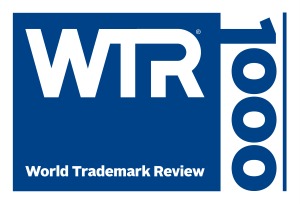When the Supreme Court released its decision in Dobbs v. Jackson Women’s Health Organization in June 2022 that overturned a half-century of precedent on abortion, the Court also caused a lot of uncertainty for companies’ health plans and employment policies.
Now, employers must navigate the patchwork of state laws concerning abortion and other reproductive services. In some cases, employers must decide whether, and how, to continue providing access to the procedure.
Recently, Neal Gerber Eisenberg partners Andrew Douglass and Sonya Rosenberg hosted a webinar during which they discussed what the Supreme Court decision means for companies, their health plans and other employment policies.
Decision’s Impacts on Health Plans
Businesses with self-funded plans will likely be able to provide at least some level of abortion coverage, according to Douglass. Under the Internal Revenue Service (IRS) rules, companies can reimburse certain expenses necessary to obtain medical care, so companies can amend their health plans to cover transportation and lodging costs for those traveling out of state. But there are tax consequences for going above IRS limits, so employers should be careful when setting these guidelines.
However, Douglass said that several of his clients are offering to cover transportation and lodging costs above the IRS limitations because they are small – the agency limits lodging expenses to $50 per night for the patient, while the current standard tax-free mileage reimbursement is $0.22 per mile driven.
On the other hand, companies with fully insured plans have fewer options than self-funded ones because the insured plans are subject to state insurance laws. Employers should consult with their carriers, but if they are operating in states with bans or restrictions on abortion, while they may not be able to cover the procedure, they may be able to offer some services outside of their health plans.
If employers want to offer additional benefits to help cover abortions and related services, Douglass and Rosenberg highly encourage them to develop a formal policy outlining those benefits to minimize confusion, establish standardization and ensure the policy is applied consistently.
But offering benefits outside of health plans does not come without risk, they said. For example, the laws in Texas and Oklahoma permit individuals to file civil actions against people and entities that aid or abet abortions – which can include paying or reimbursing costs related to abortion services through insurance or otherwise. The Employee Retirement Income Security Act (ERISA) generally does not preempt state criminal laws and might not preempt all state civil laws, so it is also possible some state actors or private individuals could bring an action against an employer that facilitates abortion access in states where the procedure is illegal. Court challenges are currently underway that may bring clarity on this issue.
General Employment Law Considerations
Aside from health plans, the Dobbs decision impacts other employment laws that companies should be watching, as well.
Under Title VII Civil Rights Act of 1964, employers cannot discriminate based on sex and pregnancy, and the law has been interpreted to prohibit discrimination based on women considering or getting an abortion. This Act, however, also prohibits discrimination based on religion, a protection that could protect those who oppose abortion on religious grounds.
And while the Americans with Disabilities Act does not consider pregnancy a disability, conditions arising from complications from pregnancy or abortion could be included under the law and require employers to provide reasonable accommodation – regardless of where in the U.S. they operate. Some states also prohibit discrimination based on political views and activities that take place outside of work.
Like the questions that still stand regarding ERISA’s preemption of state criminal laws, the interplay between federal employment law and states’ abortion laws is unclear. Rosenberg said that while federal laws generally preempt conflicting state and local laws, employers will have to wait to see how the courts rule on these issues.
In closing, Douglass and Rosenberg cautioned employers that this is a rapidly evolving area of law that should be monitored closely before making major employment or health plan changes.
If you have any questions regarding how providing abortion access relates to employers and group health plans in light of the Dobbs decision, please contact Andrew Douglass, Sonya Rosenberg, or your Neal Gerber Eisenberg attorney.
This version of the program recording does not qualify for CLE credit. To request the recording qualified for CLE credit, please contact events@nge.com.
—-
The content above is based on information current at the time of its publication and may not reflect the most recent developments or guidance. Neal, Gerber & Eisenberg LLP provides this content for general informational purposes only. It does not constitute legal advice and does not create an attorney-client relationship. You should seek advice from professional advisers with respect to your particular circumstances.












